Is Creatine Good for Female Hormones, Brain & Energy?
Creatine is one of those supplements that instantly brings bodybuilders to mind. And honestly, we’ve been guilty of that too. For years, it was pushed as a muscle building supplement for men, and only recently has it started getting the recognition it deserves for women’s health.
So, in this blog, we’re shifting the spotlight. We’re focusing on creatine and its benefits for women, because after reading the latest research, learning about the power of clean creatine, and even reading up on creatine and pregnancy, we realised this is something every woman should know about. (And for the men reading, that includes your wives, girlfriends, sisters, and mums.)
So if you’ve been wondering, does creatine help with women’s hormones? Can you take creatine when you’re pregnant? Can it boost your energy, help you sleep, and support muscle recovery?
You’re in the right place.
Women and Creatine - Does Creatine Help Women’s Hormones?
For whatever wild reason (and we have our theories), women naturally create, consume, and store less creatine than men, and we’re talking a lot, like 70-80% less! The reasons aren’t fully understood, but one theory is that because creatine mostly comes from meat and fish, and women tend to eat less of these, we often fall short.
Hormones also play a role, as oestrogen and progesterone impact how your body uses creatine, especially during hormonal shifts like the luteal phase, postpartum, and menopause. As oestrogen drops, your body’s creatine production and uptake can drop too.
Oestrogen also plays a big role in muscle health and brain energy. It influences how we build and maintain muscle (where most creatine is stored) and helps regulate brain ATP production, the very system creatine supports. This creates some kind of synergy between oestrogen and creatine.
That’s why so many women find creatine helpful during PMS, perimenopause, or hormonal burnout, those moments where energy dips, muscles feel weak, or brain fog sets in. And research backs this up, suggesting creatine helps manage these fluctuations. We’ve seen it firsthand with our customers, particularly with pre-period fatigue and menopause related brain fog.
Creatine in Pregnancy - What the Latest Studies Show
Let’s be honest, creatine probably isn’t the first thing that comes to mind when we think of pregnancy supplements. But that’s exactly why we’re talking about it. Research now shows creatine could be surprisingly supportive during pregnancy, postpartum, and even when trying to conceive.
During pregnancy, the body’s energy demands skyrocket, especially in the brain, muscles, and placenta. Since creatine helps fuel ATP, it may act as a buffer when your system’s under pressure. It’s also been linked to better reproductive outcomes in women with higher creatine intake from food.
One exciting study, published in 2025, finally tested creatine in real pregnant women (not just animals or simulations!). The results showed creatine levels rose almost identically in both pregnant and non-pregnant women, suggesting pregnancy doesn’t interfere with how your body absorbs or uses it. No major side effects were reported, and all babies were closely monitored with no adverse effects found.
That’s big news, because until now, most research was from animal studies, which had already hinted that creatine could protect a baby’s brain during prolonged labour or low oxygen situations.
So, how could this really help in pregnancy? By the third trimester, most women feel exhausted, foggy, and achy. Creatine may help top up energy reserves and support your mood, memory, and muscles. It’s even being explored for reducing birth complications and supporting maternal mental health.
Some studies have also linked low creatine to postnatal depression, which makes its role in brain energy and emotional stability even more relevant for new mums.
And while creatine isn’t officially included in pregnancy guidelines (yet), the evidence so far is very promising. In healthy pregnancies, doses of 3–5g/day have shown no harm, only potential benefit. Of course, always speak to a qualified practitioner first, but we expect this area of research to grow.
Creatine and Brain Health, Energy and Weight Loss
One of the most noticeable benefits of creatine is sharper focus, improved concentration, clearer thinking, and more balanced moods. That’s because your brain, although only 2% of your body weight, uses around 20% of your daily energy. It needs constant fuel, particularly during times of stress, hormonal change, or poor sleep, and creatine can provide that.
Creatine is even being explored as a neuroprotective nutrient. A recent clinical trial using high dose creatine (20g/day) in people with Alzheimer’s dementia showed an 11% increase in brain creatine, with significant improvements in memory, reaction speed, and cognitive performance. While this dose is much higher than most of us need, it still it shows creatine’s potential for brain health, especially for women, who seem to benefit even more.
Let’s talk metabolism.
Creatine doesn’t burn fat like thermogenic supplements. But it helps preserve lean muscle, which burns more calories at rest than fat. So the more muscle you maintain, especially if you’re working out, the more energy you naturally burn each day.
And that myth that creatine causes weight gain? It’s water being drawn into your muscles (which is actually great for performance and hydration), not fat. Most people don’t even notice it, and those who do often find the strength and energy more than worth it.
In fact, a 2019 study found that adults over 50 taking creatine alongside resistance training lost more body fat than the control group.
Can Creatine Help with Sleep & Muscle Repair?
Creatine and sleep might not sound like an obvious pair, but it makes sense when you think of recovery. Sleep is when your brain and body repair, and creatine supports that process.
Your brain is one of the most energy hungry organs in your body, and it doesn’t switch off overnight. It’s regulating hormones, repairing tissue, and processing everything from the day, all of which requires energy. Early studies show creatine may reduce mental fatigue after sleep deprivation, improve sleep quality, and help you feel more rested in the morning.
Now let’s talk movement. Whether it’s strength training, Pilates, or running after little ones, physical activity creates tiny tears in your muscle fibres, and this is how muscles grow stronger. But to repair properly, your body needs both energy and hydration at a cellular level. Creatine supports both. It restores ATP and draws water into muscle cells, helping with nutrient delivery and reducing soreness.
It’s also known to reduce inflammation and support strength, making it especially helpful for women facing hormonal fatigue, postpartum healing, or age related muscle loss.
So, is Creatine Good for Female Hormones & Energy?
Creatine might have started as a sports supplement, but the science now tells a much different story. For women, it’s a powerful support for brain function, hormonal balance, muscle strength, pregnancy, recovery, emotional resilience, and healthy ageing.
It works by helping your cells make and recycle ATP, the fuel behind everything from ovulation and mood to memory and repair. But age, stress, low meat intake, and hormonal shifts can lower your stores. And since women already start with less creatine, the impact can be greater.
That’s why a clean, pure creatine can make such a difference, especially when paired with resistance training or during demanding phases of life.
We wrote a blog last week on why we love Natroceutics Creatine, so head over to read why it’s the best creatine on the market, and why we strongly recommend it.
And if you have questions or want to share your experience, we’d love to hear from you.

